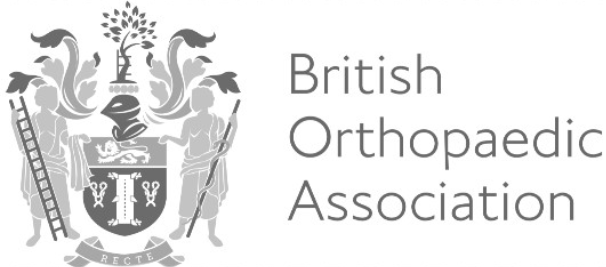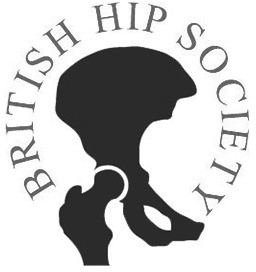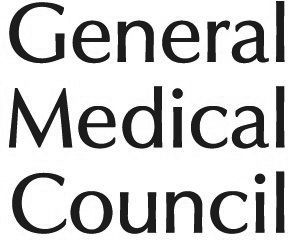Mr Jerome Davidson, Consultant Orthopaedic Surgeon
Mr Jerome Davidson
Consultant Orthopaedic Surgeon
Mr Jerome Davidson MBBS MSc (DIC) LLM MFSTEd FRCSEd (Tr&Orth)
Consultant Orthopaedic Surgeon
Mr Jerome Davidson
Consultant Orthopaedic Surgeon MBBS MSc (DIC) LLM MFSTEd FRCSEd (Tr&Orth)
Areas of expertise
- Arthritis (Hip)
- Avascular Necrosis (AVN) of the Hip
- Femur Fractures
- Hip Surgery
- Trauma Surgery

Recommendations for Mr Davidson
These recommendations are for information purposes only. Doctors providing recommendations do so in good faith and are not responsible for clinical outcomes.






Recommended by:
Make an appointment
Address
-
HCA UK at The Shard
The Shard, 32 St Thomas Street, London, SE1 9BS
-
London Bridge Hospital
27 Tooley Street, London, SE1 2PR
-
London Bridge Orthopaedics
HCA UK at The Shard, 32 St Thomas Street, London, SE1 9BS
-
The Lister Hospital
Chelsea Bridge Road, London, SW1W 8RH
-
The Princess Grace Hospital
42-52 Nottingham Place, London, W1U 5NY
-
HCA UK Canary Wharf
St Thomas Street, London, SE1 9BS
About Mr Jerome Davidson
Mr Jerome Davidson is a distinguished Consultant Orthopaedic Hip Surgeon at Guy’s and St Thomas’ Hospitals, where he leads the Sickle Hip Service. Appointed in 2015, he has garnered a reputation for his expertise in complex primary joint replacements, high-risk arthroplasty, and revision surgeries. He also provides paediatric and adolescent hip replacement services at Evelina Children’s Hospital.
Mr Davidson is the Regional Director for London (South) at the Royal College of Surgeons of England and serves as a regional representative for the National Joint Registry in London. His specialization in minimally invasive total hip replacements, with a focus on early rehabilitation, has significantly improved patient outcomes and recovery times.
His work at the Guy's Cancer Centre, particularly in operating on metastatic cancer of the hip and pelvis, underscores his commitment to addressing complex medical cases. Mr Davidson's educational background includes a medical degree from King's College London and specialized training in the Guy's and St Thomas registrar rotation, complemented by international fellowships.
Mr Davidson is dedicated to research, with numerous publications in medical journals and invitations to speak at global medical conferences. He is also an Honorary Senior Clinical Lecturer at King's College London and has previously served as the Surgical Tutor for Guy's & St Thomas' Hospitals.
His interest in medical law, supported by a Master's degree in the subject, highlights his comprehensive understanding of the legal aspects of the medical field. Mr Davidson's commitment to patient care, research, education, and legal understanding makes him a valuable asset to the medical community.
Areas of expertise
- Acetabular Reconstruction
- Arthritis (Hip)
- Arthroscopy
- Avascular Necrosis (AVN) of the Hip
- Femur Fractures
- Fracture (Broken Bone)
- Fracture Fixation Surgery
- Hip Arthroplasty
- Hip Dysplasia
- Hip Fractures
- Hip Injections
- Hip Replacement
- Hip Resurfacing
- Hip Surgery
- Hip and Groin Pain
- Joint Injection
- Knee Fractures
- Knee Replacement
- MRI Scan (Magnetic Resonance Imaging scan)
- Minimally Invasive Hip Surgery
- Osteoarthritis
- Osteomyelitis (Lower Limb)
- Osteoporotic Fractures
- Revision Surgery
- Sports Injuries
- Stress Fractures
- Tendon Repair
- The Young Hip
- Tibia Fractures
- Trauma Surgery
Frequently asked questions
Why do you do what you do?
Orthopaedic surgery was a very attractive specialty to me because you could make definite changes in patients' quality of life. It allowed you to provide an intervention and, almost overnight, the patient was significantly better, whether it was trauma when someone broke a bone and you could fix it, or a hip surgery when someone had debilitating hip arthritis which almost puts them in a wheelchair and you can give them a hip replacement and then they can walk. It's being able to see that almost immediate improvement for patients. That was the start of why that seemed to be something that I wanted to do. It's quite diverse. The hip surgery ranges from elderly frail patients who have hip fractures through to patients who have very high demand and want to be able to do lots and lots with their hip through to more sedentary patients. It's a broad group. That's what brought me into hip surgery. I have a particular interest in patients who have a lot of comorbidities, who are considered high risk patients. I've always felt that a patient, through no fault of their own, may have a lot wrong with them which they need care for. I've always wanted to be able to provide care to those ones who are in a really difficult place. They may have heart disease or diabetes or they may have kidney transplants or liver transplants. My practice is trying to deal with those patients who have a difficult problem, but still need help with their bones and joints. The other thing that I have an interest in is patients who have metastatic cancer. You really get limited option opportunities to do things for patients who have a cancer that's spread to their bones, but to give them the better quality of life for the time they have remaining, and that's quite important to me. That's the biggest driver for me to manage patients with metastatic cancer.
What are the common symptoms that your patients tend to present with?
Patients with hip problems commonly present with pain, but that pain can be really variable. They can get pain in their groin, which they don't think is hip pain if they think it's in the groin, but actually can be coming from their hip. They often have pain over the side of their hips or pain in their buttock. A lot present with low back pain because the combination of hip and low back problems often go together. Another really common symptom that they present with is stiffness. The kind of stiffness that goes throughout the day or they notice that they find it difficult to put on shoes and socks and they just feel like that their leg is seizing up. Or it may be that it's a function problem that they can't walk as far as they used to or they've had to stop playing football or tennis because they just feel too uncomfortable at the end of the day after doing it, and are becoming more sedentary and missing out on doing the activity that they used to enjoy doing.
What are the treatments that you're able to offer your patients?
The first thing is just being able to give patients an honest assessment of actually what's going on because sometimes people just want to know what the problem is. They may not actually want to have anything done yet, but they'd like to know why something is bothering them. If it is, the things that we can do include getting them seen by physiotherapy teams, orthotics teams and other specialties that can help with them. We arrange injections into muscles, tendons and into the joints. We can arrange for them to have a therapy called shockwave therapy, which is very good for a condition called gluteal tendinopathy. Then we have the more invasive treatments such as hip replacement surgery and different types of hip replacements that we use. I choose the implant that best suits the patient. It's not a one-size-fits-all scenario. If there's something that's better for you, then we use that. Then there are patients who've had hip replacements in the past, and we know that they don't last forever or there may be problems with them that need assessing and sorting, and then it's a case of figuring out if we need to change their implants or if we need to do different operations to make their implants work better. As for trauma surgery, it's fixing bones, and that's often done with plates and screws, rods and nails. In general terms, that's what I do.
What are your areas of sub-specialist interest?
I did fellowship training in orthopaedic oncology and in hip and knee, but predominate hip reconstruction and joint replacements. I have a practice that has a lot of arthroplasties or hip replacement through all ages of adults. So, starting at 18 and all the way into the 90s or beyond. I have an interest in complex reconstructions, either complex patient groups who have multiple capabilities or orthopedically technical problems such as patients who have congenital dysplasia or sickle cell disease. I'm also a revision hip surgeon. My NHS practice is in a specialist centre where I do revision surgery. That's for implants wearing out, failing, treatment of infection, et cetera. I also manage bone infection around the hip, pelvis and femur in patients who've got infected joints or infected bones and manage them. In my NHS practice, I treat a lot of patients who have metastatic cancer around the hip, pelvis and femur and look at either reconstructing their hips with arthroplasty interventions or stabilizing their bones to minimize their risk of fracture and improve their pain. These are the main bits of what I do.
Professional memberships




Articles by Mr Jerome Davidson
Comparative endurance testing of the Biomet Matthews Nail and the dynamic compression screw, in simulated condylar and supracondylar femoral fractures
Surgical technique for reconstruction of severe acetabular defects during revision total hip arthroplasty

 Instant booking
Instant booking

























